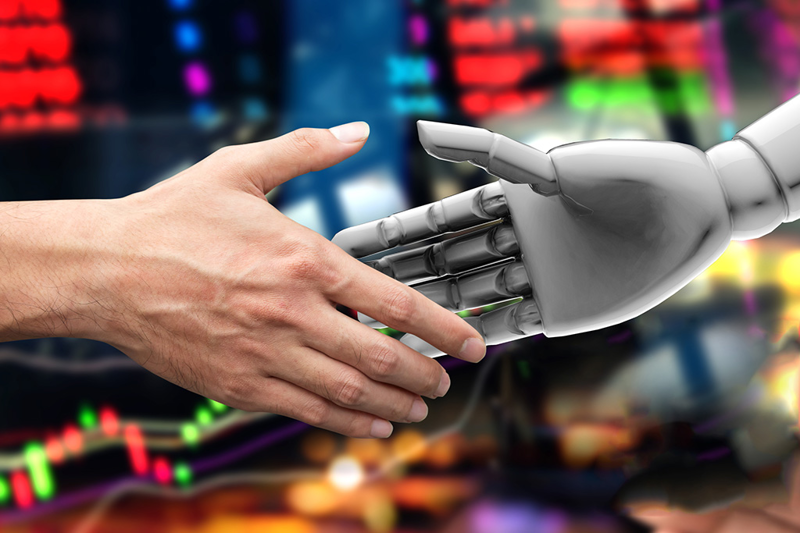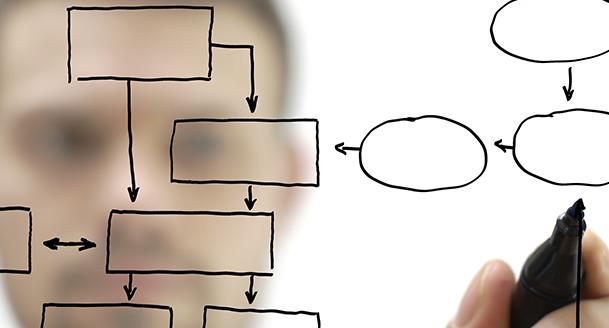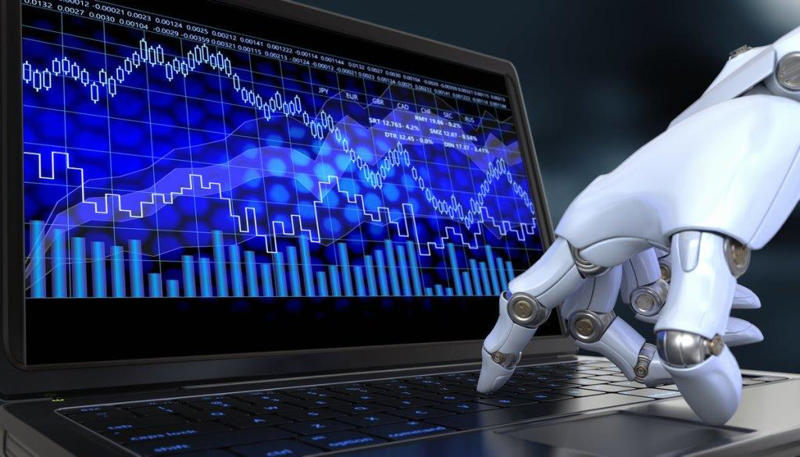Before you start talking about
algo trading, you need to define it.
So, what is algo trading? There is a
different definition of this concept, only its essence and the principles on which the work is
based remain unchanged. Algo trading-trading, which takes place through a fully automated algorithm, which prescribes the trader, the execution of which potentially brings profit to the trader. In fact, it is a program that carries a sequence of actions. [nerd]

The trader himself
makes and determines the sequence of applications for purchase or sale, indicating the order of management of his funds.
The money management conditions set by the trader as
program parameters determine the necessary or optimal size of investments, for example, purchased securities. Similarly, this system manages the allowable loss or risk at which the size of the loss will be acceptable. In this case, risk management is performed by setting the
stop loss algorithm.
The absence of feelings and emotions in the
algorithmic program allows to avoid nervous breakdowns or other emotional outbursts. This is certainly a plus, since the work of a trader often occurs on the verge of nervous tension, and sometimes a person can lose his nerves, which will entail a rash step and as a consequence of loss. At the same time, the trader has the
opportunity to intervene in the work of the trading strategy,
making the necessary adjustments. [laugh]
The
task of algo trading is the exact execution of the instructions of its system. Often in some sources you can see the name of
mechanical trading systems (MTS), but algo trading is the most common name. In fact, the algorithm is
" mechanically " executed by the program, excluding judgments about the market situation and the state of various instruments. I must say that the "mechanical" system is
not always automated. The latter, unlike the first, independently makes transactions, with the participation of a person is not required or minimized.

Experts note that the algorithmic trading consists of
two stages. Let's take a closer look at them.
At the
level of the first stage, the trader creates his "mechanical" strategy. After creation, the process of
testing on the market data, and subsequently, when the strategy reaches the desired level of potential
profit, testing goes into real time or real trading. Note that the last stage takes place when using
minimal capital, as it is testing, and some traders prefer it to
"trade on paper". At the same time, profitability is not the only criterion that gives an assessment of the efficiency of the strategy.
Let's talk about the means of creating and then testing the created strategies. Such tools may include
special programs designed for technical analysis of algorithmic systems created. The most famous are: carried out using specialized programs:
MetaStock, S#.Designer, Wealth-Lab, Tslab and others.
The strategy program is written in various programming languages such as:
C#, C++, LUA and others. The recorded algorithm makes it possible to use the
downloaded market data to test the strategy, and in the future allows you to place orders in the programs used for trading. It is worth noting that strategies can be created as in constructor programs for example:
S#.Designer, Tslab, in which the strategy is created on the basis of cubes, and the program is a scheme, and in programs where direct programming is used
MetaStock, Wealth-Lab, including using ready-made libraries, such as
S#.API.
The
second stage of development begins after the trader's strategy has been fully tested and is ready for
real trading. The second stage is implemented approach strategy or a trading robot that will trade the set algorithm or the trader selects the manual bidding process on a signal received from created strategy.
The trader connects the e
xport of stock market data obtained in real time to the program in which his trading strategy is created. The strategy processes the data and based on the result, sends a signal to submit applications.
Again, what alarm action strategy can be done manually by a trader, and can be delegated to a
trading robot, which places bids automatically according to the algorithm, for example in systems like
S#.Designer, MT4, TSlab.

It should be
remembered that the creation of a trading robot does not relieve the
trader of responsibility for the trade itself. The trader must
constantly monitor the work of his robot, edit the terms of transactions according to the changing situation in the market. [nerd] Should be said, when
working on long time frames, comparable, for example, with an hour, the automation of placing orders may disappear, since the trader is able to correlate and manage the trade on
long periods.
Any chosen direction of algo trading can undoubtedly bring profit to the trader, but the approach should be deep, not just at the level of the chosen algorithm, it is necessary to take into account the tools on which the trade will be conducted, the software. An important rule is analysis and testing, it
always minimizes your losses.